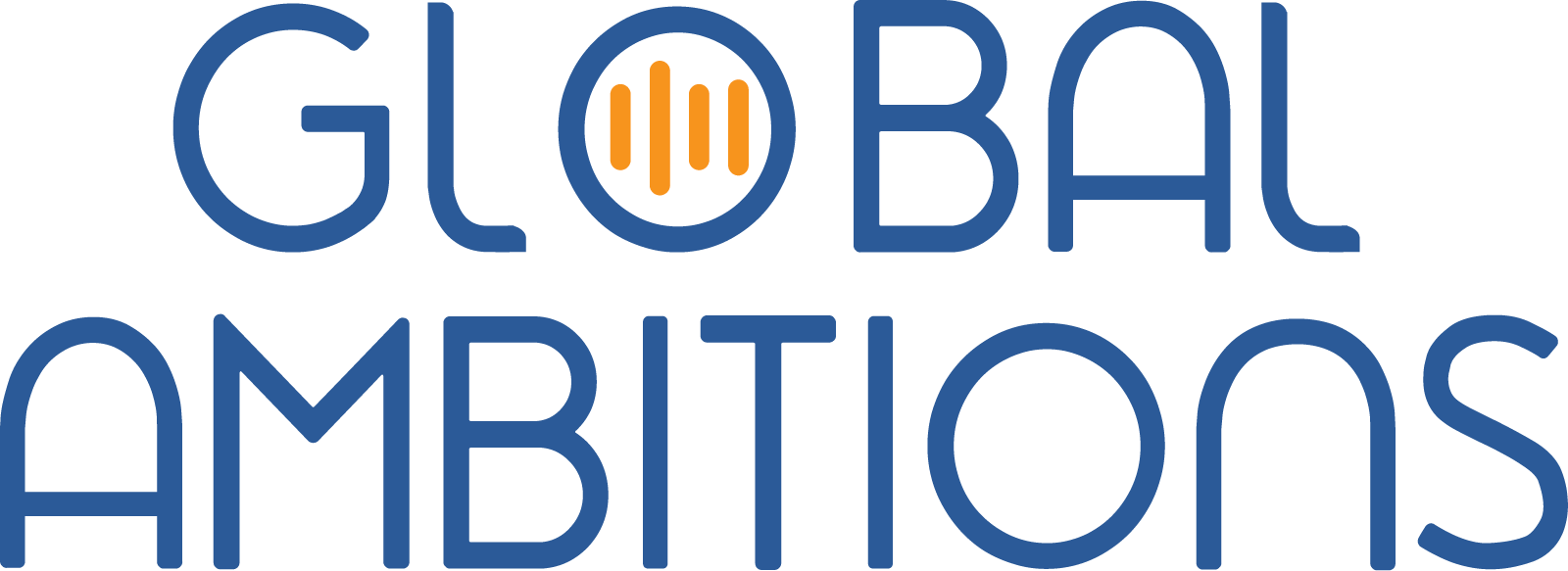With Kevin O’Donnell, International Expansion & Growth Advisor
Below is an automated transcript of this episode
Antoine Rey: 0:18
Hi everyone. I’m Antoine Rey and I will be your host today for this Global Ambitions podcast episode. And today my guest is Kevin O’Donnell. Kevin has worked in localization capacity at many multinational companies, including Dropbox, Nitro and Microsoft. He’s now an independent consultant in international and gross expansion. Kevin, welcome to the program.
Kevin O’Donnell: 0:39
Thank you, Antoine, great to speak with you today.
Antoine Rey: 0:41
So you’ve made a career turn there recently and you’re now consulting for a number of organizations. But, based on your experience, both on the consulting side and with your previous companies, one of the main questions that I’m hearing from a lot of localization managers is how can we become more strategic in our organization? How can we move away from being a cost center to a strategic revenue contributor, for instance? And so it’s trying to give the listeners here some practical steps and maybe trying to avoid certain pitfalls. And why is it important? Why do they fail? Why do they succeed in that?
Kevin O’Donnell: 1:21
Yeah, I love this question because it’s such a common phenomenon where localization teams are often characterized as purely a cost center, and I think that undersells and underutilizes their assets, and I think they’re one of the most underutilized assets in any organization. I think it needs to start with a mindset change from localization leaders themselves. I think they need to move beyond their remit of delivering a localized product and think about how they can become a growth driver for their organization, and some of the ways this can be challenged is by changing how you talk about localization in an organization. So many localization teams will highlight how many words they’ve localized, what their cost per word is, what their turnaround time is all important metrics but when you’re talking to senior leaders in an organization, they don’t understand the context of that, they don’t map that to company growth, and so there’s a disconnect there.
Kevin O’Donnell: 2:23
So if you talk about localization in terms of transactional metrics and operational attributes, you are limiting the scope of your conversation. So I think the first imperative is to change the conversation to start talking about localization in strategic terms. So map it to what the company cares about. So that might be global expansion, it might be more monthly active users, it might be a better revenue share internationally compared to the US. So if you understand what the company cares about, then start talking about outcomes instead of outputs for your own localization team. So that’s where I would always advocate localization leaders to start. Change the conversation away from strictly operational towards more of a strategic conversation.
Antoine Rey: 3:15
Yeah, and there’s like redefining about a few conversations this week actually with companies that say like they’ve had to redefine the KPIs and the metrics that they’re looking at and keeping what you talk about here, like as word rates or number of languages volumes, you know is important from an operational perspective, but redefining KPIs around probably more customer acquisition, customer retention, SEO, net, new customers there from like an organic perspective.
Kevin O’Donnell: 3:47
100%. So you think about at the end of the year what the CEO will celebrate a success for the company. You want to be able to map your localization work and your contribution to that success and it’s very difficult for anybody to map the amount of words you translate. Even if it’s a million words, 10 million words, it’s hard to know exactly how that relates to company growth or more revenue. It’s easier if you can tie that specifically to the priority markets you’re working on, or we spent time working on marketing localization and that increased our marketing pipeline, or we were able to increase our customer satisfaction in these particular markets due to our work. So by making those connections, then localization becomes known as a growth driver and a value addition for the company.
Antoine Rey: 4:40
The other question I get a lot from a localization manager is why is it important to become more strategic rather than a cost center operational?
Kevin O’Donnell: 4:51
Yeah, I think there’s a couple of reasons why. One is simply to become more influential, to have a bigger impact in the company, and most people who are ambitious in their career they want to put a stamp on their role in the company. There is more you can do. I think you want to use your potential. Secondly, I would say thinking about growing the career of people in your team, people who are ambitious and want to expand their skill set, become more influential, gain more experiences. This is a great way to do this.
Kevin O’Donnell: 5:23
Localization is a nice entry point towards product management or towards marketing or towards customer success, and so, by stretching the limit of what you’re responsible for, that’s a great way to start doing that. And then finally, maybe somewhat of a defensive strategy, is that localization can be at risk to be outsourced. And if you are purely viewed as an operational or transactional team, even if you’re very efficient and highly successful at that, if you are a black box, then that black box could be outsourced to a third party, whereas if you’re seen as a strategic driver for your company and an asset for different internal teams, then it’s easier to make the case for expanding the team and leveling up that team.
Antoine Rey: 6:08
Yeah, and you’re probably also in the process providing different career progression paths, I guess, for employees.
Kevin O’Donnell: 6:17
Oh, completely yeah, and that’s often a challenge at localization teams. Somebody who’s been in the team five, six years. They might have done everything in the team. Where do they go next? And there’s not always those entry points or pathways towards another career, and this is a great way to do that.
Antoine Rey: 6:33
I’d like to talk as well about, like go-to-market strategy, like this function seems to be becoming a more established part of many companies, yet when it comes to international, they seem to fall behind.
Kevin O’Donnell: 6:53
Yeah, I think gap is the word here and I think it’s an awareness gap more than anything. So if you talk to a lot of companies that originated in the US or don’t have a strong international DNA, then the design, the research, the product planning tends to be very US-centric. And if you ask why or you penetrate through that, it’s usually because of a lack of awareness. They don’t understand what the needs of customers internationally are. They don’t know the different nuances and what’s needed. Localization teams are ideal to fill this gap. They have the connection. They understand international requirements. They understand the nuances needed for different countries. So it’s an ideal way to step in and to be helpful.
Kevin O’Donnell: 7:39
So a great way to start is simply to walk through your product, to do a screencast. Walk through your product in another language, pick Japanese or pick Portuguese, a language where you can demonstrate some of the gaps it might be translation gaps, it might be user experience gaps and identify the pitfalls that customers in this market might encounter. So, for example, it could be the payment method. We only support credit card and the country we’re testing credit card is not a commonly used payment method. Maybe we only charge in US dollars. Maybe we don’t support some of the sign-in methods used in that market.
Kevin O’Donnell: 8:19
If you can identify some of these, then you can link it to some of the key metrics that go-to-market teams care about Paid conversion rate, retention rate and you can start giving the solution to your growth teams and your marketing teams and your product teams and say we have identified some problems, but what’s better is we know how to fix it and we’re going to give you some of the tools of how that can be fixed. And that’s the way you can become a constructive ally for your go-to-market team and you can say we will fill that gap for you in go-to-market and we can be your international resource.
Antoine Rey: 8:55
So how do you promote those services? Because usually what I see is that those go-to-market team don’t necessarily by default come to the localization team for those services. They think localization is just they’re just going to translate our stuff. So how do you advertise or evangelize those services to those teams?
Kevin O’Donnell: 9:18
It’s a tricky one for sure, because it goes back to the first point. Localization doesn’t have a reputation often for participating in these types of conversations. It’s very, very transactional. So there’s a few ways it can be done. Sometimes you just need to find a good partner. To start with a partner where you’ve cultivated a great relationship. It might be with your marketing counterpart.
Kevin O’Donnell: 9:39
The next time you get a request to say, translate a Gartner report, while you can do that and you probably should do that it could be good to dig in a little bit and to ask why do you need this translated? What are you going to measure in terms of success for this? And the answer is probably well, we’re trying to grow our international pipeline, we’re trying to get more marketing qualified leads, and we think by translating this we will get it. That’s a good opportunity to give some alternative ideas, to say, well, we can do that for sure, but actually you’re missing something.
Kevin O’Donnell: 10:12
Your marketing campaign is not well optimized for Italy. We think you could spend your budget better by doing an experiment and improving your campaign in Italy, and here we can help you with that. So almost by finding a small example of where you can be a valuable partner for something that’s going to help a problem. That’s an in-road you can get. Similarly for support teams. You might localize help center content all the time and that’s a pretty typical thing to do. But really what support teams want is happy customers and they want to increase customer success rates and satisfaction. There might be more you can do to improve that. Rather than simply fulfill a translation request, you might say well, let’s talk about where the gaps are. Maybe we could improve the localization messages on our chat support on the website. We can work with you on that.
Antoine Rey: 11:06
I kind of like your idea internally of doing a product walkthrough into a different language to your internal stakeholders to show some of the issues or the potential gaps there. But that’s one aspect on the inside of your own organization, you know. But how do you become like kind of like? The other side is how do you become kind of a champion for international customers, Like if your go-to market team, for whatever reason, is not talking to international customers? Is that a role that localization can fulfill and help with?
Kevin O’Donnell: 11:38
I think they should try. I think absolutely In every role I’ve had in different companies, I’ve always had to fight to talk to customers and often there are gatekeepers because they want to be careful of protecting customer relationships. So I think if there’s a gatekeeper in your organization, you want to try to make that connection and say, well, I’d like to understand the experience of our customers in Germany or in Argentina. I say, can I talk to some of them or can I listen into a conversation? And by hearing that conversation it might be somebody in sales or customer success or in the research team. If you can start listening in and hearing customers directly, then you’re going to start piecing together their experiences and you can then champion that. If you can’t talk to them straight away, well, let’s look at some survey results or some of the responses we get from customer support queries and by telling the story of international customers you can then celebrate them and become their champion.
Kevin O’Donnell: 12:43
And in most companies I’ve worked with there is a huge gap. It’s not like everybody else is talking to international customers. So if you put your hand up and say, I want to do this, I want to carve out a couple of hours a month to do that. It will usually be welcomed, and particularly if then you can package it up to a nice report or a nice description to say here’s what I found. Here are some of the ways our product is failing to meet their needs in certain markets, or here’s where they have interesting use cases we may not know about. And then you’re giving some interesting, constructive feedback that is brand new for product teams or research teams. So you’re being additive and constructive. You’re not bringing just problems and defects, you’re bringing something that’s actually telling them something interesting and new.
Antoine Rey: 13:34
And this is more than just reading and analyzing customer surveys and data that might have been gathered in a different way. It is actually talking to your international customers, is it?
Kevin O’Donnell: 13:39
If possible.
I think it’s worth thinking about what would be the ideal case.
Kevin O’Donnell: 13:44
The ideal case would be the localization team is a full stack team, partnered with every internal team and talking to customers, and that might be a stretch, but if that’s the ideal, there are ways you can perform elements of that job.
Kevin O’Donnell: 13:57
So perhaps you can listen into a conversation with your sales team that are talking to customers internationally and then, when you’re listening in, you might be taking notes and after doing 10 of these calls, you might have gathered a couple of insights that you can then share back to sales leadership or to marketing and say here’s what I’ve noticed by listening into some of our international customer calls and you may not know this and you’re giving something new. So there’s definitely inroads and I think it’s worth pushing the boundary of what you do as a localization team and any of these activities. They’re typically outside of your day job, but it’s a nice way to start changing the narrative around what localization does and even simply by joining a customer conversation, your sales team or your marketing team are going to look at you differently. They’re going to think about inviting you again next time.
Antoine Rey: 14:48
Natural elevation. That’s good. I like it. Well listen, Kevin. Thanks very much for all these insightful tips and advice. I think a lot of people who are listening to this podcast will benefit from that and will make sure also to share your details if they want to get in contact directly to work with you. They’re more than welcome to do that. So, again, thanks very much for participating in this podcast and we’ll see you again soon.
Kevin O’Donnell: 15:11
Fantastic. Thanks for having me, Antoine.





